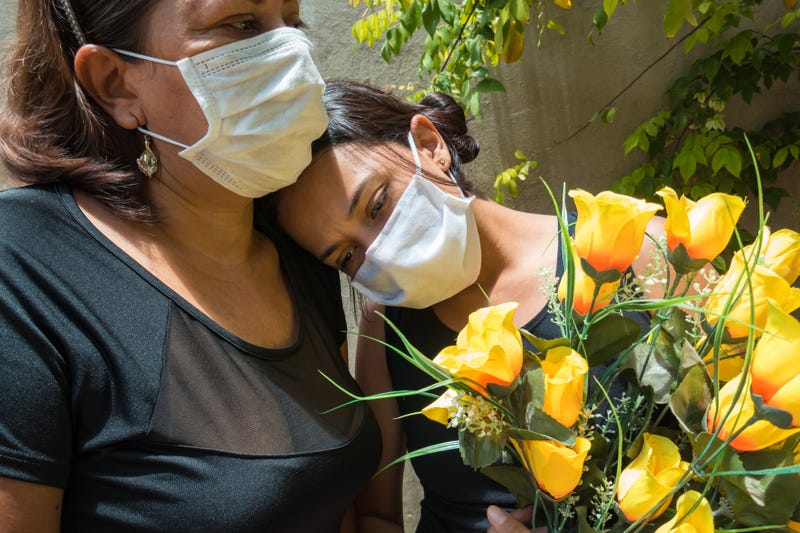
SAN FRANCISCO (KCBS RADIO) – The United States has reached a sobering moment in the COVID-19 pandemic: 1 million coronavirus deaths across the country.
For more, stream KCBS Radio now.
Dr. Jeremy Faust, an emergency physician at Brigham and Women's Hospital in the Division of Health Policy and Public Health and an instructor at Harvard Medical School, told KCBS Radio's "Ask An Expert" he fears we have become numb to these harrowing milestones.
"When you look back to 2020 and the front page of the New York Times at one point had a headline about 100,000 deaths and saying that this was an 'incalculable loss,' and then in the fall of 2020 we saw 200,000, 300,000, it kept growing. Pretty soon what happened was what I think many of us feared, which was that they start to just become numbers and we forget that every single number is a person," he said.
In the coming weeks, the United States Centers for Disease Control has estimated that COVID-19 cases will see a sharp rise. This surge around, we are equipped with medicines and treatments to help those with the disease push through, such as Pfizer's Paxlovid, but Faust voiced some speculation.
"Paxlovid is a very interesting and important innovation," Faust said. "What I'll say is a couple of things. One, it clearly was studied in unvaccinated people, so this incredibly good effect in decreasing hospitalization and deaths was primarily found in unvaccinated people. Vaccinated subjects were studied and I think it's reasonable to think that it has some benefit, but I don’t think the effect is nearly as high."
For young vaccinated and boosted individuals, Faust said Paxlovid is less likely to impact their COVID-19 infection.
"I don't suspect that I'll take Paxlovid if and when I get COVID, which I think will probably happen at some point," he said. "But for older people with risk factors, I think that it is reasonable and important."
Faust speculated that it was possible the medicine is getting under-prescribed to the people who need it and over-prescribed to the younger generations. "I think we need to be careful about prioritizing this because it can make a huge difference," he explained.
LISTEN to KCBS Radio
FAVORITE KCBS Radio
Facebook | Twitter | Instagram

